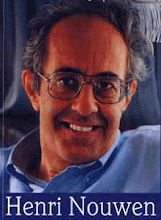Wednesday, October 13, 2021
C. S. Lewis: "I came to the conclusion that Christianity must be the truth because it has a queerness about it that no human could have written."
Henri Nouwen in his bestselling book, "Return of the Prodigal Son" (cover photo) makes the point that it is normal for us to feel uncomfortable when we are around others who are broken. For instance, one may feel awkward talking with a wheelchair-bound person, a disenfranchised homeless person, an A.I.D.S. hospital patient, the very poor, a prisoner or elderly with dementia in a nursing home. Yet, that is exactly who Jesus is - all the above. He is prisoner, homeless, sick and he bore all our diseases. Nouwen seems to say that Christ is encountered not in what we perceive to be the winners of traditional religion, but in the troubling and disturbing disguise of broken, miserable losers. The ones often hidden from sight in alleyways, under bridges, in our prisons and hospitals. Nouwen concludes this is most clearly evident when he identifies the older dutiful son in the parable of the prodigal son as the one who really didn't get it. However, conversely, the broken, humble and poor little loser brother did. It takes humility to appreciate the fact that the kingdom of God is upside down. What's down is up. Up is down. The last is first. The first is last. C. S. Lewis quipped in his book "Mere Christianity" that as an atheist before his conversion, "I came to the conclusion that Christianity must be the truth because it has a queerness about it that no human could have written."
Subscribe to:
Post Comments (Atom)



























No comments:
Post a Comment